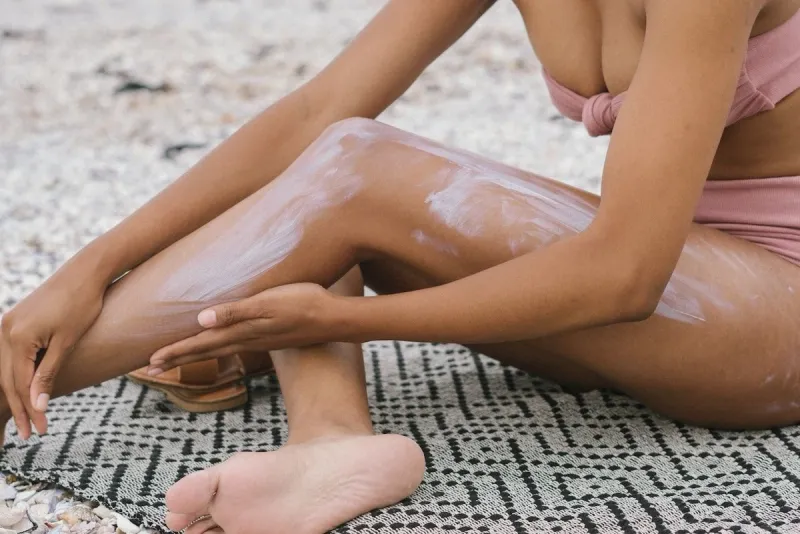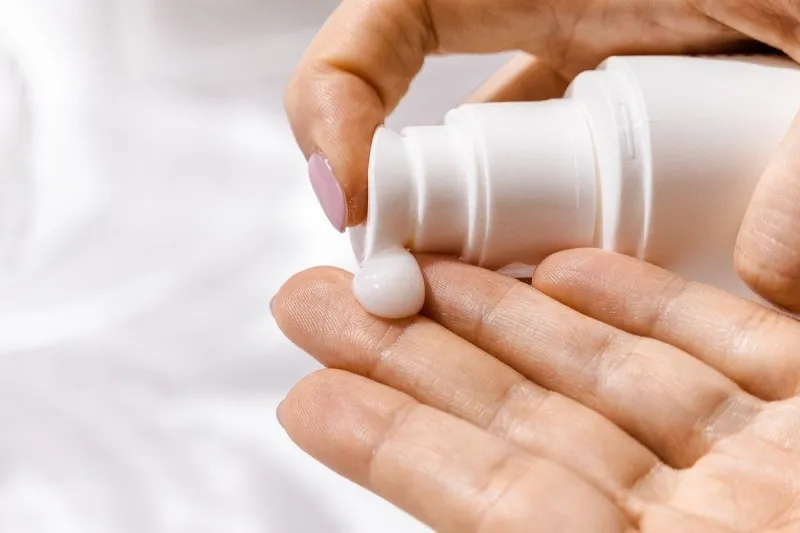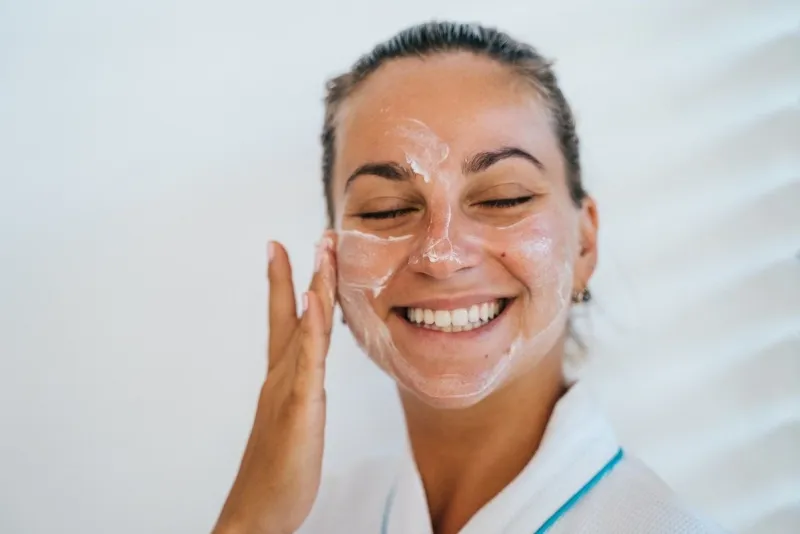
It’s time to rethink your sunscreen.
Sunscreen can protect your skin from the sun, but it can also be harmful to the seas. You may not know this, but many sunscreen brands use certain chemicals that put our oceans at risk. When these chemicals get washed into our waterways, they can harm marine life such as coral reefs. The good news is that you can take part in the protection of coral reefs by switching to reef-safe sunscreen.
What Is Reef-Safe Sunscreen?
As the name suggests, reef-safe sunscreen keeps reefs safe. Reef-safe sunscreen is free of chemicals and small particles that can pollute the seas. Unlike sunscreens that contain harmful chemicals (e.g. oxybenzone, octinoxate, and octocrylene), this environment-friendly option contains reef-friendly ingredients that are less likely to harm marine life, such as oxide and titanium dioxide.
This, however, is not to say that sunscreen is instantly reef-safe if it has oxide and titanium dioxide. To be considered an eco-friendly sunscreen, its particles need to be “non-nano”, too. This is because coral reefs can absorb the particles if they’re too tiny. Mineral sunscreens are considered safer for the seas because they’re made with big particles that can’t be ingested by the corals.
How Does Sunscreen End Up In The Sea?
Bear in mind that certain sunscreen contains chemicals that may be beneficial to you, but not to our oceans. Whenever you go swimming, the sunscreen you slathered on will get washed away and end up in the world’s waterways. The solution isn’t to stop swimming, as chemicals can still flow into the ocean from showering.
If you think the sunscreen will be diluted by the time it flows into waterways, think again. Wastewater treatment systems can’t remove these chemicals. In fact, scientists say that more than 14,000 tons of sunscreen wash into our waterways yearly.
How Does Sunscreen Harm Marine Life?
So, how does sunscreen harm marine life? The culprits can be found in a chemical sunscreen. It contains chemicals that convert UV into heat so you don’t get sunburnt, but the downside is that they can also be stressors to corals. Not only do they reduce corals’ defenses, but they can also damage corals’ DNA, preclude their reproduction, and more. Sunscreen can also be the cause of deformities among baby coral.
Because of the stress, the corals will soon bleach. Coral bleaching is when corals expel algae, which is what they rely on for survival. When this occurs, the corals will turn white and eventually die. And although sunscreen isn’t the only cause of coral bleaching (climate change is one of the main factors), it can contribute to it.
That’s why Hawaii passed a law that bans the use of certain chemicals (oxybenzone and octinoxate) in sunscreen. While there are other harmful ingredients in sunscreen (such as Benzophenone-1, Benzophenone-8, and OD-PABA), those two are the main culprits as they can cause severe damage to coral and coral larvae.
Why Do We Need To Protect Coral Reefs, Anyway?
If you’re wondering why we need to safeguard corals, the answer is that we need corals. It goes beyond biodiversity — not only are corals home to marine life, but they also act as a barrier that protects coastal communities from storms, tsunamis, and more. In addition, corals contain medicinal components that can be used to treat diseases.
Unfortunately, we’re running out of coral reefs at an alarming rate. Experts believe that over 50% of coral reefs worldwide have already been destroyed and that 40% more could be destroyed in the next 20 years.
That’s why you need to choose your sunscreen wisely. By wearing coral reef-safe sunscreen, you won’t be contributing to the destruction of coral reefs. And as a bonus, you’ll be able to protect the whole ocean. This is because corals aren’t the only ones at risk — chemicals can also harm other marine life such as fishes, sea urchins, and green algae, among many others.
How Do I Know If Sunscreen Is “Reef-Friendly”?
Sunscreen doesn’t always have the environment’s best interests at heart. That, however, does not mean you should stop wearing sunscreen. It’s crucial to wear sunscreen as it’s what will protect you from the sun’s UV rays. Here’s how to choose what coral reef-safe sunscreen to wear:
Remember to read the label. The key is to use reef-safe sunscreen that doesn’t contain chemicals that can kill corals. Be sure to read the label and avoid brands that have these ingredients:
- Oxybenzone
- Octinoxate
- Benzophenone-1 and -8
- OD-PABA
- 3-Methylbenzylidene Camphor
- Benzylidene Camphor
- Nano-Titanium Dioxide
- Nano-Zinc Oxide
- Octocrylene
Say no to nanoparticles. Stay away from sunscreens with nanoparticles, as they are so small that they can be consumed by corals. As a rule of thumb, the particles in reef-friendly sunscreen should be larger than 100 nanometers.
Make sure it’s mineral. Your best bet is mineral sunscreen as it has not been linked to coral bleaching — plus, it’s better for people with specific skin concerns such as acne or rosacea.
If possible, opt for paraben-free. Some skin care products contain parabens that are known to kill corals. Parabens are bad for you, anyway, so it’s best to stay away from these substances. They can irritate your skin and increase the risk of skin cancer.
Buy rub-on sunscreens. Do not use spray-on sunscreen as it can land on the sand where it can be washed away into the sea. Buy reef-safe sunscreen that needs to be rubbed on.
Wait for the sunscreen to stick to your skin. Wait a few minutes for the sunscreen to stick to your skin. This will lower the risk of it getting washed away the moment you get in the water.
The Takeaway
Sunburn isn’t the only thing you should be worried about when your sunscreen gets washed away whenever you go swimming. You should also be worried about the environment. If you’ve decided to ditch your current sunscreen for eco-friendly sunscreen, we can help you with that.
At Proven Skincare, we care for the environment, too. That’s why we’re committed to using eco-friendly ingredients that won’t harm marine life. Our goal is to create a wide range of custom skincare solutions that target your skin concerns, as well as align with your green goals. Answer our Skin Quiz now to get sun protection that protects the seas at the same time.










